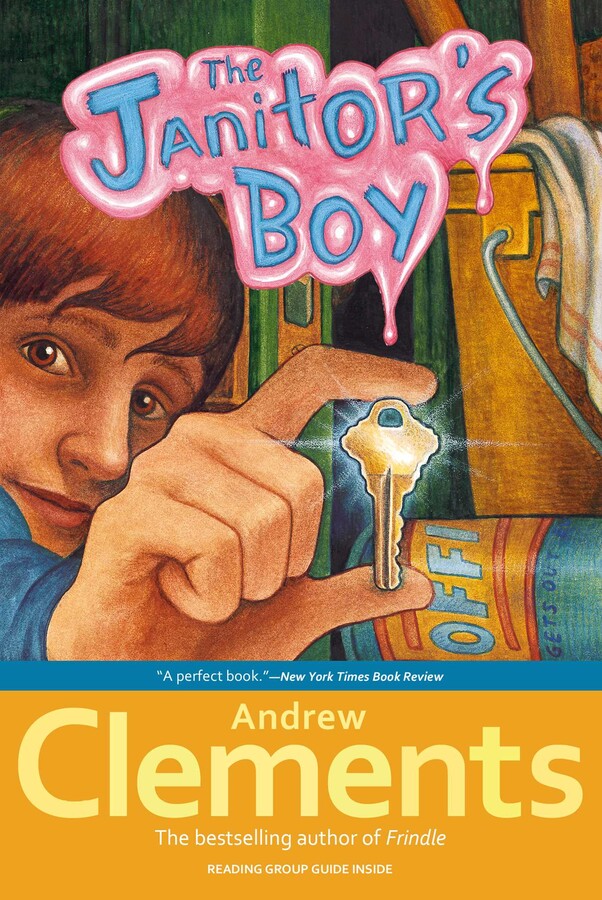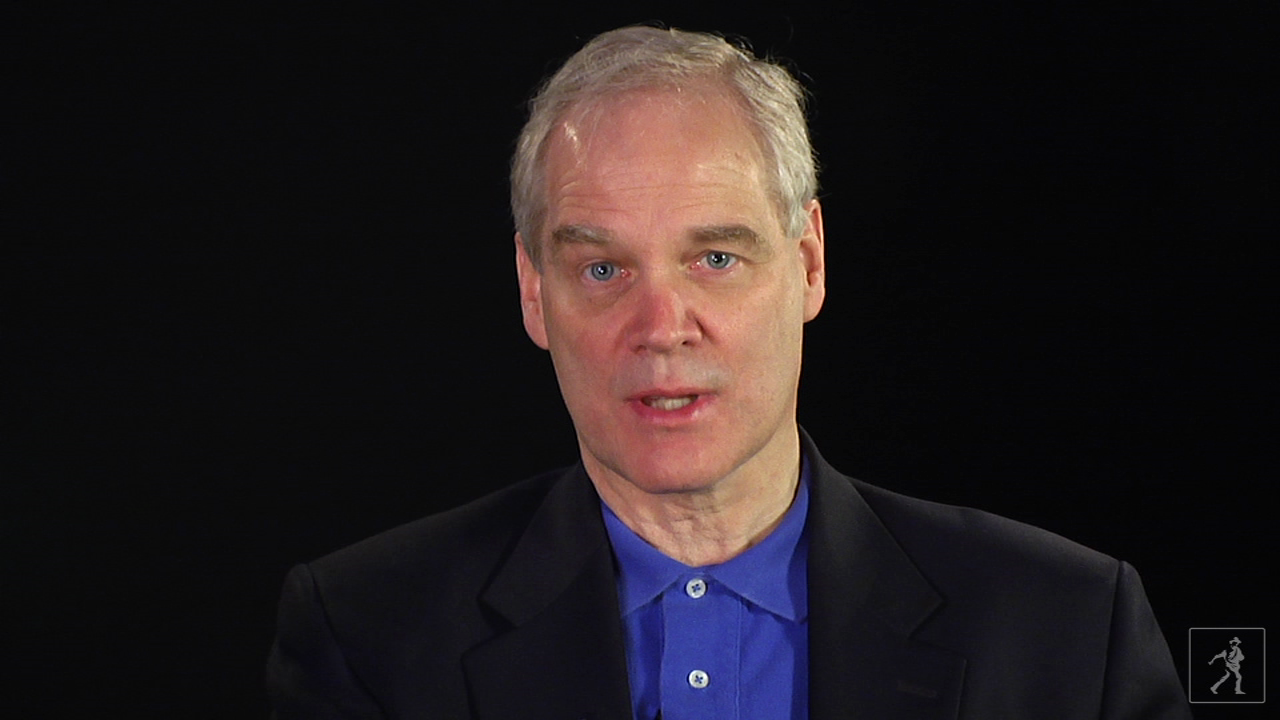Get our latest book recommendations, author news, competitions, offers, and other information right to your inbox.
Table of Contents
About The Book
When Jack Rankin learns that he is going to spend the fifth grade in the old high school -- the building where his father works as a janitor -- he dreads the start of school. Jack manages to get through the first month without the kids catching on. Then comes the disastrous day when one of his classmates loses his lunch all over the floor. John the janitor is called in to clean up, and he does the unthinkable -- he turns to Jack with a big smile and says, "Hi, son."
Jack performs an act of revenge and gets himself into a sticky situation. His punishment is to assist the janitor after school for three weeks. The work is tedious, not to mention humiliating. But there is one perk, janitors have access to keys, keys to secret places....
Excerpt
Jack Rankin had a particularly sensitive nose. As he walked into school in the morning, sometimes he would pause in the entryway and pull in a snootload of air from the flow rushing out the door. Instantly he could tell what the cafeteria lunch would be, right down to whether the Jell-O was strawberry or orange. He could tell if the school secretary was wearing perfume, and whether there was an open box of doughnuts on the table in the teachers room on the second floor.
On this particular Monday morning Jack's nose was on high alert. He was working on a special project -- a bubble gum project. Today's activity was the result of about a week's worth of research and planning.
Days ago, Jack had begun the project by secretly examining the bottoms of desks and tables all over the school, trying to decide exactly which kind of discarded gum was the most unpleasant. After he conducted his first few sniff tests, he didn't even have to look underneath a table or a chair to tell if there was gum. The scent of the stuff followed him from class to class. He had gum on the brain. He smelled gum everywhere -- on the bus, in the halls, passing a locker, walking into a classroom.
Jack finally chose watermelon Bubblicious. It had to be the smelliest gum in the universe. Even weeks after being stuck under a chair or table, that sickly sweet smell and distinctive crimson color were unmistakable. And Bubblicious, any flavor of it, was definitely the stickiest gum available. By Jack's calculations, it was more than three times stickier than Bazooka.
The final stage of Jack's gum caper began in today's third-period gym class. Mr. Sargent had them outside in the cool October air, running wind sprints to prepare for a timed mile next week. By the end of the period Jack had four pieces of gum in his mouth, chewed to maximum stickiness. The smell of it almost overpowered him.
Carefully steering a wide path around Mr. Sargent, he went to his locker before the next class. He spat the chewed gum into a sandwich bag he had brought from home. The bag had two or three tablespoons of water in it to keep the gum from sticking to the plastic.
Jack sealed the bag, stuffed it into his pocket, and immediately jammed another two pieces of gum into his mouth and started to chew.
He processed those two pieces plus two more during science, managed to chew up another four pieces during lunch period, and even finished one piece during math -- quite an accomplishment in Mrs. Lambert's classroom.
By the time he got to music, he had thirteen chewed pieces of gum in a plastic bag in the pocket of his jeans -- all warm and soft and sticky.
Monday-afternoon music class was the ideal crime scene. The room had four levels, stair-stepping down toward the front. The seats were never assigned, and Mr. Pike always made kids fill the class from the front of the room backward. By walking in the door just as the echo of the bell was fading, Jack was guaranteed a seat in the back row. He sat directly behind Jed Ellis, also known as Giant Jed. With no effort at all he was completely hidden from Mr. Pike.
The only other person in the back row was Kerry Loomis, sitting six seats away. She was hiding too, hunched over a notebook, trying to finish some homework. Jack had half a crush on Kerry. On a normal day he would have tried to get her attention, make her laugh, show off a little. But today was anything but normal.
Mr. Pike was at the front of the room. Standing behind the upright piano, he pounded out a melody with one hand and flailed the air with his other one, trying to get fidgety fifth graders to sing their hearts out.
Jack Rankin was supposed to be singing along with the rest of the chorus. He was supposed to be learning a new song for the fall concert. The song was something about eagles soaring and being free and happy -- not how Jack was feeling at this moment.
Bending down, Jack brought the baggie up to his mouth and stuffed in all thirteen pieces of gum for a last softening chew. The lump was bigger than a golf ball, and he nearly gagged as he worked it into final readiness, keeping one eye on the clock.
With one minute of class left, Mr. Pike was singing along now, his head bobbing like a madman, urging the kids to open their mouths wider. As the class hit a high note singing the word "sky," Jack leaned over and let the huge wad of gum drop from his mouth into his moistened hand. Then he began applying the gum to the underside of the folding desktop, just as he'd planned.
He stuck it first to the front outside edge and then pulled a heavy smear toward the opposite corner. Then he stretched the mass to the other corner and repeated the action, making a big, sticky X. Round and round Jack dragged the gum, working inward toward the center like a spider spinning a gooey, scented web.
As the bell rang Jack stood up and pulled the last gob of gum downward, pasting it onto the middle of the metal seat. A strand of sagging goo led upward, still attached to the underside of the desk.
It was the perfect crime.
The whole back of the music room reeked of artificial watermelon. And that gob on the seat? Sheer genius. Jack allowed himself a grim little smile as he shouldered his way into the hall.
There were two more class periods, so a kid would have to notice the mess today -- this very afternoon. Mr. Pike would have to pull the desk aside so no one would get tangled in the gunk. Mr. Pike would need to get someone to clean it up before tomorrow.
So after someone had swept the rooms and emptied the trash cans and washed the chalkboards and dusted the stairs and mopped the halls and cleaned the entryway rugs, someone would also have to find a putty knife and a can of solvent and try to get a very sticky, very smelly desk ready for Tuesday morning. It would be a messy job, but someone would have to do it.
And Jack knew exactly who that someone would be. It would be the man almost everyone called John -- John the janitor.
Of all the kids in the school, Jack was the only one who didn't call him John. Jack called him a different name.
Jack called him Dad.
Copyright © 2000 by Andrew Clements
Reading Group Guide
Get a FREE ebook by joining our mailing list today! Get our latest book recommendations, author news, competitions, offers, and other information right to your inbox.
1. Jack makes a careful plan to deface a music room desk. Explain Jack's plan. Do you think most kids put gum under desks or do other damage to school property in similar ways, or for similar reasons? What does Jack hope to achieve with his gum plan?
2. In chapter two, Andrew Clements writes: "...laughter from kids is more powerful than words from teachers." What does this mean? In what ways is this statement correct? In what ways is this statement incorrect?
3. What do Luke and Kirk do to Jack after his dad cleans up their classroom in chapter three? What other encounters does Jack have with Luke and Kirk? How does he handle them? Do you think Jack uses a good strategy to handle these boys? Explain your answer. Have you ever teased another kid about something he or she could not change? Why did you do this? How did you feel about it afterwards?
4. Chapter six begins with a discussion of ways in which Jack is like his dad. Are you ever told you are like your father, mother, or another family member? How does this comparison make you feel? How does the comparison make Jack feel? What is the real reason he feels this way?
5. Describe Jack's mother and sister. Do you think Jack has a good home life? How might this story have been different had Jack explained his feelings to one of his parents? Do you think he understood his feelings well enough to explain them?
6. How does Jack's father react to Jack's bad behavior and punishment? What does Jack think about this reaction?
7. What is the thing that Helen calls "Boy Territory"? Do you think there is a comparable place that could be called "Girl Territory"? What is the author really describing when he speaks of "Boy Territory"?
8. What does Jack learn about gum from his three-week punishment? What does he learn about the old school building? What does he learn about his father's job?
9. What happens when Jack discovers that one of the mystery keys leads him to the tower? Late in the story, another character admits to spending time up in the tower. Who admits this? Did this admission surprise you? What does the tower section of the story show readers about this character? What does it teach readers about Jack?
10. What does Jack's father tell him about his grandfather? Why do you think he tells him this story? Do you think Jack's grandfather was a good person? Was he a good father? In what ways is Jack's dad similar to or different from Jack's grandfather? Do you think Jack's dad would have reacted the same way to the totaled car? Explain your answer.
11. Explain what John means when he says, "My life is my life, and yours is yours. I'm just glad that we get to run side by side for a few years, that's all."
12. Can you think of a moment in time when you felt you really understood a parent's point of view? Describe this moment and how it affected your relationship with this adult.
Activities and Research
1. Interview an adult at your school who holds a job other than that of teacher, such as an administrator, cafeteria cook, or janitor. Include questions about their job responsibilities, how they came to have their job, their childhood, life outside of school, favorite books, and special interests. Videotape the interview, or use the information to write a newspaper-style article about your chosen person.
2. Organize a school cleanup day. Ask your teacher, principal, or janitor what type of cleanup is most needed. Make posters announcing your cleanup day. Make a list of tasks and divide them among participating students or classes. Take pictures of the big cleanup and create a wall display recapping highlights of the day.
3. Jack makes a list of ways he is not like his father. Make your own list of ways you are similar to and different from others in your family. What similarity makes you most proud? What difference do you find most interesting? Try turning your list into a poem.
4. Make a map of your school. First, take a walk around the school, taking careful notes about what you observe. If necessary, use a separate sheet of graph paper for each floor of your school. Use a rule and colored pencils to create your map, being sure to label halls, classrooms, the gym, the library, the office, and other important places. Highlight favorite locations or places of special interest. Mount your finished map on a sheet of colored paper to create a frame. If possible, compare your map to the maps of classmates or friends. What similarities and differences can you find? What can you learn about different kids' feelings about their school from looking at their maps?
5. Like his father, John the janitor is willing to quietly help others without seeking any recognition for himself. Make a quiet offer of help to someone in your community. Rake an elderly neighbor's yard, help a busy mom by playing with her preschoolers for an afternoon, or give a teacher a hand straightening up his or her classroom after school. Don't wait until you're asked, and don't ask for anything in return. Afterwards, write a short journal entry explaining how your action made you feel. Will you do such a thing again?
6. Go to your local library or online to learn more about American war veterans. Then create a patriotic poster honoring all of America's veterans, or an individual veteran you know. Invite some veterans from your community to a classroom or school assembly acknowledging their contributions. The assembly could include a short performance of patriotic music, tasty treats, and the presentation of your posters.
7. Write a short essay describing the job held by one of your parents or guardians. What do you know about their job? How did they come to have this job? How do you feel about the position they hold? Would you like to have a similar job when you grow up? Why or why not?
8. Why do kids sometimes find it difficult to tell their parents how they are really feeling? What might be some ways to make communication easier? Write lyrics for a song about a kid talking to an adult. Set your words to a favorite song. If desired, perform your song for family members or friends.
About The Illustrator
Brian Selznick is the author and illustrator of the bestselling The Invention of Hugo Cabret, which was awarded the Caldecott Medal and was a National Book Award finalist. He is also the illustrator of many books for children, including Frindle and Lunch Money by Andrew Clements, as well as the Doll People trilogy by Ann M. Martin and Laura Godwin, and The Dinosaurs of Waterhouse Hawkins by Barbara Kerley, which was a Caldecott Honor Book. Mr. Selznick divides his time between Brooklyn, New York, and San Diego, California.
Product Details
- Publisher: Atheneum Books for Young Readers (May 8, 2012)
- Length: 160 pages
- ISBN13: 9780689850516
- Ages: 8 - 12
Browse Related Books
Awards and Honors
- Nene Award Nominee (HI)
Resources and Downloads
High Resolution Images
- Book Cover Image (jpg): The Janitor's Boy eBook 9780689850516
- Author Photo (jpg): Andrew Clements Photo Credit:(0.1 MB)
Any use of an author photo must include its respective photo credit





















